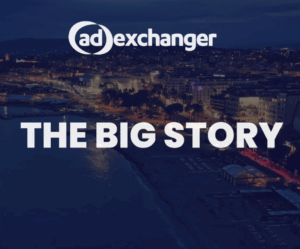Anyone can read an article. But not just anyone reads an article like “Newly Diagnosed with HIV? Important Things to Know” or “The Ultimate Guide to MS for the Newly Diagnosed.”
Healthline is paying $1.55 million for violating CCPA. Pixels attached to these ads were used to target people while they were streaming TV and found its way into data broker profiles, according. It wasn’t clear that users were consenting to use of their data in this way, and opt outs were glitchy and didn’t consistently work.
The fine, a first for a publisher, underscores a few things. First, intent doesn’t matter as much as you’d think. A privacy string that doesn’t work doesn’t get a publisher off the hook for a violation. Second, publishers don’t often think of URLs of articles as private. But building audience profiles from these types of articles – which reveal a probable diagnosis – will get publishers into trouble. Third, anyone in the health space should be aware that regulators are looking at them through a microscope.
The new AI contract
Then, we talk through how two ends of the advertiser spectrum, publishers and advertisers, are grappling with changes due to AI.
The ANA created customizable, standardized language for marketers to use with their agencies. The goal is to clarify when AI is being used, and allow brands to calibrate the right mix for them. Primarily focused on generative AI, the language has important implications for brands who might not be able to copyright material that’s created by certain AI platforms, for example.
And on the publisher side, the IAB Tech Lab is proposing an API that would tokenize publisher content. AI companies would pay publishers when this content is used in AI chats or results. In contrast to what Cloudflare is doing, which sets the tollbooth at the crawling level, this type of approach could offer more of an upside for publishers whose content shows up frequently in AI-generated answers.
But the ask is big. Will AI companies play ball, and be willing to pay publishers for content? For publishers seeing traffic crater, gaining licensing revenue may be existential. If people find answers without reading the articles of origin, the loss of attention could starve publishers of ad revenue and lead to their extinction. No big deal.














